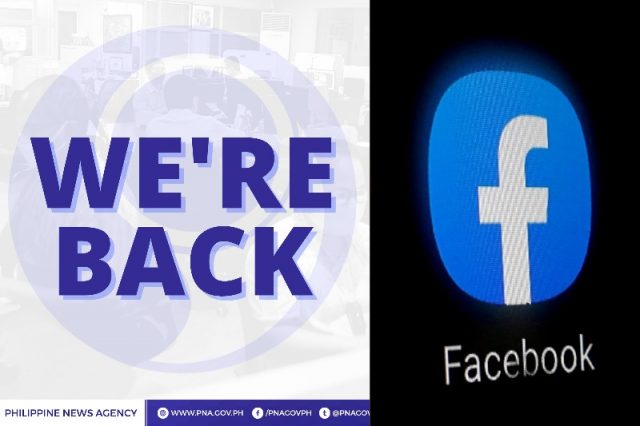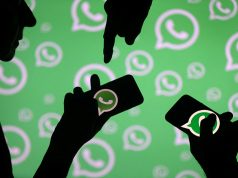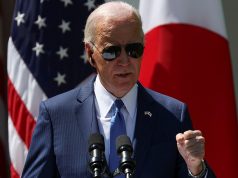
(Updated: 6:05 p.m.) Social media giant Facebook last Saturday restricted the state-run Philippine News Agency from posting stories on the social network site for allegedly going against its community standards.
On Sunday, PNA updated the public and said that the posts that were previously taken down on Facebook have already been restored.
The agency noted that the posts were flagged before midnight on April 23.
“WE’RE BACK. The Philippine News Agency (PNA) apologizes to our readers and followers for the delay in the posting of our stories on Facebook due to unforeseen circumstances,” it said on its Facebook page on April 24.
“Since before midnight on April 23, 2022, PNA stories posted on Facebook, as well as those of individual account-sharers of PNA articles, got flagged — generating outrage, concern, and confusion from netizens,” it added.
PNA added that Meta, Facebook’s parent company, has yet to provide the agency an explanation on how the posts it took down violated the platform’s guidelines.
“As of this posting, previously taken-down posts of PNA are now back on Facebook but its mother company, Meta, has no explanation yet on how the posts violated their community standards, specifically on cybersecurity,” it said.
PNA earlier informed the public about its situation via a post at 12:52 p.m. on Sunday.
It noted that the posts were flagged in violation of Facebook’s Community Standards on Cybersecurity.
“Social media giant Meta (Facebook) has flagged multiple PNA posts which allegedly violated its community standards. One of the flagged and recently removed posts is ‘Kabankalan City takes pride in being home to oldest living Pinoy’”, a story on the life of 124-year-old Francisca Montes Susano,” PNA said.
“The article was posted on PNA’s official Facebook page and website on September 13, 2021 and was tagged as a post in violation of Facebook’s Community Standards on Cybersecurity on April 24, 2022,” it added.
The agency further said that the shared posts from accounts of its reporters and editors were also removed.
Its Twitter account is not affected by the restriction.
Facebook’s policies
According to Facebook’s Policy Rationale on Cybersecurity, attempts to gather or access “sensitive” and unauthorized” information count as violations.
“Attempts to gather sensitive personal information or engage in unauthorized access by deceptive or invasive methods are harmful to the authentic, open and safe atmosphere that we want to foster. Therefore, we do not allow attempts to gather sensitive user information or engage in unauthorized access through the abuse of our platform, products, or services,” Facebook said.
Facebook’s Transparency Center also lists the following online activities that would be considered in violation of its cybersecurity policies:
- Gaining access to accounts, profiles Facebook, Inc. entities, or user data other than your own through deceptive means or without explicit permission from the account, profile, or entity owner.
- Encouraging or deceiving users to download or run files or programs that will compromise a user’s online or data security, including through malicious software or websites. Such files and programs will be deemed malicious software or “malware” if they harm or gain unauthorized access to a computer, device, or network.
- Attempting to obtain, acquire or request another user’s login credentials or other sensitive information, whether explicitly or through deceptive means such as phishing (e.g. fake surveys designed to capture log-in info or links to fake login pages or impostor websites) or the use of malicious software or websites.
- Publicly sharing your own or others’ login information, either on platform or through a third party service.
- Creating, sharing or hosting malicious software including browser extensions and mobile applications, on or off the platform that put our users or products and services at risk.
- Providing online infrastructure, including web hosting services, domain name system servers and ad networks that enables abusive links such that a majority of those links on Facebook or Instagram violate the spam or cybersecurity sections of the Community Standards.
‘Dangerous, alarming’
The National Press Club accused Facebook’s partners in its fact-checking initiative, Rappler and Vera Files, of allegedly being involved in the incident.
NPC president Paul Gutierrez described the restriction as a “wholesale censorship” that tramples on “sovereignty” of the country.
“This is dangerous and truly alarming. Increasingly, Facebook, on the proddings of its fact-checkers and other state enemies, such as the CTGs, is demonstrating its capacity to resort to the neo-fascist method of wholesale censorship— and of an entire country at that— unmindful that it is already trampling on the laws and the sovereignty of our Republic,” Gutierrez said.
Gutierrez called on government agencies to “discipline” Facebook and its fact-checkers.
“The NPC’s call for the responsible agencies of the government to discipline Facebook and its fact-checkers, particularly, Rappler and Vera Files, has become more urgent and compelling,” he said.
Despite these allegations, Inday Espina-Varona, head of regions for Rappler, in a tweet said she disagrees with a “blanket act against any news outfit when they can respond post per post.”
“Media pa din ito. Awful but still… I protest this making things difficult for the entire outfit. Pwede namang mag target sa false info post per post, not a blanket act,” she said.
Media pa din ito. Awful but still… I protest this making things difficult for the entire outfit. Pwede namang mag target sa false info post per post, not a blanket action. Probably an unpopular opinion, but am more libertarian on this score. https://t.co/Hg0WXMN5ue
— inday espina varona (@indayevarona) April 24, 2022
The ruling party PDP-Laban also denounced the takedown of PNA’s posts.
PDP-Laban President Alfonso Cusi, also the energy secretary, specified the removal of posts about political candidates President Rodrigo Duterte and the party had endorsed for the elections this May.
“It is alarming that a foreign media company is blatantly controlling and censoring in violation of our freedom of speech and the right to information and expression of not only our citizens but as well as many of our government institutions. This is a direct attack on the rights and sovereignty of Filipinos,” Cusi said.
On Monday afternoon, a spokesperson for Meta, Facebook’s parent company, told Philstar.com that an automation system — not third-party fact-checkers as the Department of Interior and Local Government claims — was behind the flagging of posts by PNA.
“We are aware that some links to the PNA and Radyo Pilipinas websites appear to be blocked from being shared on our apps, by an automation system,” Meta was quoted by Philstar.com as saying.
“As a result, other Facebook Pages that have previously shared these links, would see their posts flagged as well. We are investigating and working to resolve this issue,” it added.









